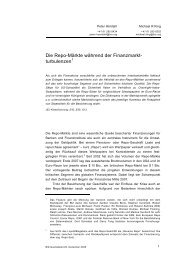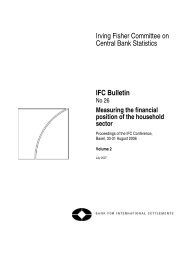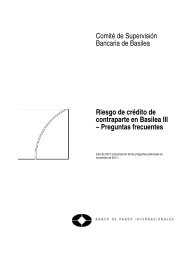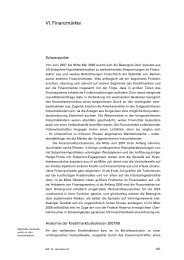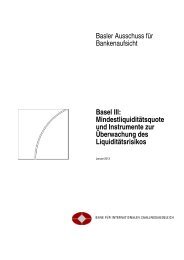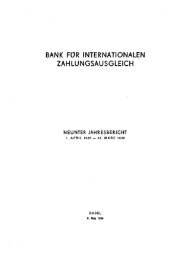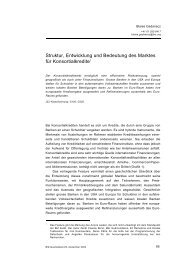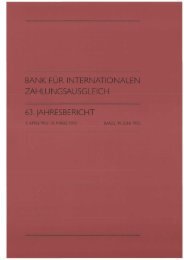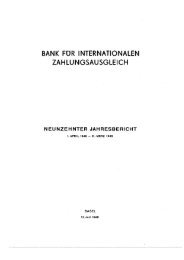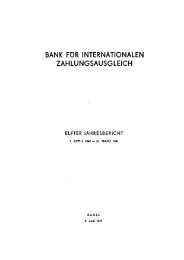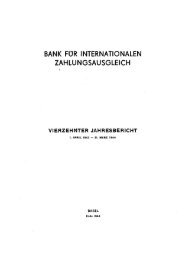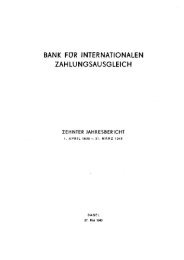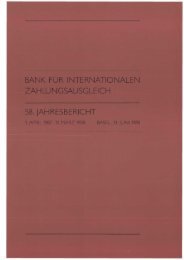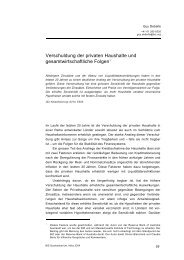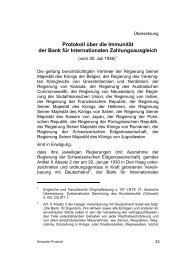Payment systems in Tanzania - Bank for International Settlements
Payment systems in Tanzania - Bank for International Settlements
Payment systems in Tanzania - Bank for International Settlements
Create successful ePaper yourself
Turn your PDF publications into a flip-book with our unique Google optimized e-Paper software.
- 210 - <strong>Tanzania</strong><br />
stability, conducive to a balanced and susta<strong>in</strong>able growth of the national economy <strong>in</strong> <strong>Tanzania</strong>. The<br />
goal of the <strong>Tanzania</strong> National <strong>Payment</strong> System is to enable efficient circulation of money.<br />
To achieve price stability, the <strong>Bank</strong> of <strong>Tanzania</strong> has to regulate the money supply. A<br />
recent survey reveals that, cash accounts <strong>for</strong> about 40% of the total bank payments followed by<br />
cheques (estimated at about 80% of all commercial bank non-cash paper based payments <strong>in</strong> the<br />
country). This <strong>in</strong>dicates an <strong>in</strong>efficient payments system, which is cash based with very few cash<br />
substitute <strong>in</strong>struments, especially <strong>for</strong> low value payments.<br />
The measure of money supply over GDP (f<strong>in</strong>ancial deepen<strong>in</strong>g) has stood between 30 and<br />
40% while the share of currency <strong>in</strong> the money supply has stood at about 30% over the last five years.<br />
<strong>Payment</strong> system <strong>in</strong>efficiencies are believed to contribute <strong>in</strong> driv<strong>in</strong>g the population away from the<br />
<strong>for</strong>mal sector.<br />
5.3.2 Instruments of monetary policy <strong>in</strong> <strong>Tanzania</strong><br />
For the purpose of the National <strong>Payment</strong> System, four <strong>in</strong>struments are considered vital<br />
<strong>for</strong> implementation of monetary policy <strong>in</strong> <strong>Tanzania</strong>.<br />
(a) Discount rate policy<br />
To ensure that the activities of banks cont<strong>in</strong>ue smoothly, the central bank uses its<br />
ref<strong>in</strong>anc<strong>in</strong>g and open market policy to accommodate banks to assist them to meet their <strong>in</strong>terbank<br />
obligations. With<strong>in</strong> the framework of the ref<strong>in</strong>anc<strong>in</strong>g policy, the BOT establishes conditions <strong>for</strong><br />
ref<strong>in</strong>anc<strong>in</strong>g commercial banks. The ref<strong>in</strong>anc<strong>in</strong>g policy can be the discount policy or the Lombard<br />
policy.<br />
With<strong>in</strong> the framework of the discount policy, the BOT buys from and sells to banks trade<br />
bills, treasury bills, and other specified securities at a rate (discount rate) set by itself. Under the<br />
discount rate policy the <strong>Bank</strong> uses one or both of a qualitative discount policy and a quantitative<br />
discount policy.<br />
(b) M<strong>in</strong>imum reserve policy<br />
The base <strong>for</strong> the determ<strong>in</strong>ation of the m<strong>in</strong>imum reserves of commercial banks to be held<br />
with the <strong>Bank</strong> of <strong>Tanzania</strong>, free of <strong>in</strong>terest, <strong>in</strong>cludes all shill<strong>in</strong>g deposits, borrow<strong>in</strong>g from the general<br />
public (<strong>for</strong>eign currency deposits are excluded) and vault cash. The m<strong>in</strong>imum reserve ratio is<br />
uni<strong>for</strong>mly applied to all banks, although accord<strong>in</strong>g to the <strong>Bank</strong> of <strong>Tanzania</strong> Act, the ratio may differ<br />
by type of deposit.<br />
(c) Open market policy<br />
While the other monetary policy <strong>in</strong>struments have been exclusively deal<strong>in</strong>g with<br />
commercial banks, open market policy <strong>in</strong>cludes non-banks. Although the <strong>in</strong>stitutional framework <strong>for</strong><br />
carry<strong>in</strong>g out open market policy <strong>in</strong> <strong>Tanzania</strong> is still somewhat limited, the <strong>Bank</strong> has been resort<strong>in</strong>g to<br />
treasury bill auctions, tap sales of Treasury bills and direct sales of certificates of deposits.<br />
The proceeds from the sale of the liquidity papers are set aside <strong>in</strong> a special account<br />
created solely <strong>for</strong> monetary policy purposes and is not used to f<strong>in</strong>ance spend<strong>in</strong>g by either the<br />
government or the <strong>Bank</strong> of <strong>Tanzania</strong>.<br />
The effect of open market operations <strong>in</strong> <strong>Tanzania</strong> has recently been enhanced<br />
substantially due to the <strong>in</strong>creased amount of sterilised Treasury bills and the suspension of<br />
Government overdrafts with the <strong>Bank</strong> of <strong>Tanzania</strong>. It is hoped that the <strong>in</strong>troduction of repurchase<br />
agreements (repos) will add flexibility <strong>in</strong> the provision of central bank balances to the commercial<br />
banks on short-term.



